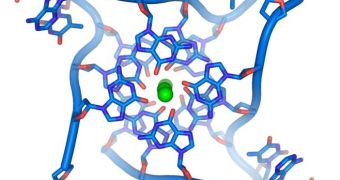A group of American investigators announces the discovery of the first batch of solid evidences indicating that the process of methylation – and the adjacent gene sequences – have co-evolved in humans and chimpanzees. The species separated from a common ancestor some 6 million years ago.
This is the first time such quantitative evidences have been discovered, and investigators say that the conclusion they point towards paints a very interesting picture of the correlations and similarities between the two species.
The work was conducted by a group made up of researchers from the University of Southern California (USC) and the Cold Spring Harbor Laboratory (CSHL). They explain that methylation is a process that looks as if DNA strands are bookmarked with methyl molecules.
There are numerous other methods of marking the genome other than methylation, and together they are known as epigenetic processes. The main role they play is to alter the ways genes are expressed, but without influencing the sequence of DNA letters that underlies the way the gene operates.
Interestingly, the CSHL/USC team suggests that methylation can in fact change these DNA letters, producing what experts refer to as a short-lived flexibility in phenotype. This ability would allow a species to follow an advantageous evolutionary trail without wasting resources.
“This part of our data shows how it is possible for methylation to serve as an agent of evolution,” explains CSHL professor Dr. Gregory Hannon. The expert, who was the co-leader of the research team, also holds an appointment as a Howard Hughes Medical Institute investigator.
USC professor Dr. Andrew Smith is the other co-leader. He initiated this research project some years ago, while studying as a postdoctoral researcher in Hannon's lab at the CSHL.
Details of the work were published in two scientific papers. The first appears in the September 15 issue of the esteemed journal Cell, and is entitled “Sperm Methylation Profiles Reveal Features of Epigenetic Inheritance and Evolution in Primates.”
The second paper is entitled “Directional DNA Methylation Changes and Complex Intermediate States Accompany Lineage Specificity in the Adult Hematopoietic Compartment,” and was published in the September 15 advanced online issue of the journal Molecular Cell.
This investigation was made possible by funds provided by the US National Science Foundation (NSF) and Kathryn W. Davis.

 14 DAY TRIAL //
14 DAY TRIAL //